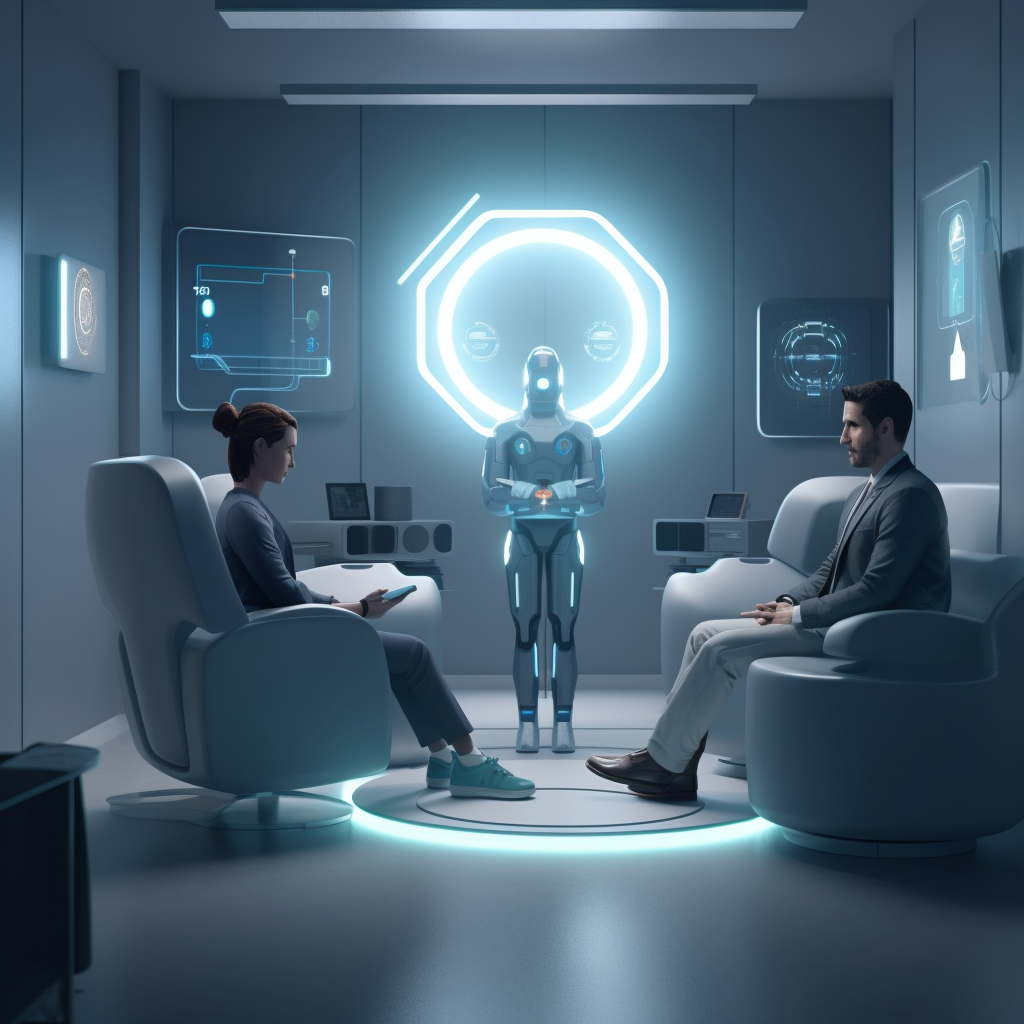A Digital Revolution in Mental Health: The Promises and Perils of AI-Powered Counseling

Artificial intelligence is poised to reshape the mental health and counseling landscape. Will AI therapists become our go-to confidants, or do the risks outweigh the benefits?
In an era when AI is conquering one domain after another, mental health and counseling are no exception. With the growing demand for mental health services and a persistent shortage of professionals, AI-powered solutions are emerging as a promising alternative. But can we trust machines to help us navigate our deepest emotions and vulnerabilities? In this in-depth exploration, we will delve into the potential impact of AI on the mental health and counseling industry, examining the pros and cons of AI therapy, discussing the feasibility of AI counselors, and contemplating the ultimate outcome of this digital revolution.

Part 1: The Pros of AI in Mental Health and Counseling
Bridging the Gap: Accessibility and Affordability
The integration of AI in mental health care has the potential to address significant barriers to access, including the scarcity of mental health professionals, long waiting lists, and prohibitive costs. With AI-driven virtual therapists and chatbots, millions of individuals who might otherwise go untreated can receive timely, affordable, and personalized care.
Early Detection and Prevention
Through the analysis of vast datasets, AI algorithms can identify early warning signs of mental health issues, such as changes in social media activity, speech patterns, or physiological markers from wearable devices. This early intervention can prevent the development of more severe conditions and save lives.
Personalization and Adaptability
AI-driven tools can tailor treatment plans to each individual by analyzing personal data, preferences, and unique needs, resulting in more effective and efficient interventions. Moreover, AI systems can learn and adapt over time, continually refining their therapeutic strategies based on real-time feedback.

Part 2: The Cons of AI in Mental Health and Counseling
Data Privacy and Ethical Concerns
As AI relies on the collection and analysis of sensitive personal information, data privacy and ethical considerations are paramount. Ensuring informed consent, protecting patient confidentiality, and adhering to data protection regulations are essential to maintain trust and safeguard individuals' rights.
Bias and Inequity
AI algorithms may inadvertently perpetuate biases and exacerbate existing disparities in mental health care if they are trained on unrepresentative or skewed datasets. Developing AI systems that are fair, unbiased, and culturally sensitive is crucial to avoid exacerbating existing inequities.
The Human Touch
While AI may offer impressive technological capabilities, it is important to recognize the limitations of machine-based empathy and the value of human connection in therapy. AI may struggle to understand and respond to nuanced emotions and the complexities of the human experience. As such, the absence of genuine empathy and emotional intelligence could hinder the therapeutic process for some individuals.

Part 3: Can People Really Take Counseling from AI? Real-life Examples
Several AI-powered tools have already made a mark in mental health care, and their success provides a glimpse into the future of AI counseling.
1. Woebot: This AI-driven chatbot uses principles of cognitive-behavioral therapy (CBT) to help users manage their mood and cope with mental health issues. By engaging users in interactive and personalized conversations, Woebot provides support, psychoeducation, and coping strategies.
2. Tess: Tess is an AI-powered chatbot that offers emotional support and evidence-based interventions tailored to each user's needs. By leveraging natural language processing and machine learning, Tess can assist users in managing stress, anxiety, and depression.
3. Ellipsis Health: This AI-driven platform analyzes vocal biomarkers in speech to assess patients' mental health. By identifying patterns indicative of mental health issues, it helps clinicians monitor patients' well-being and make informed decisions about their care.
4. Replika: Replika is an AI-powered chatbot designed to act as a personal confidant, providing users with a safe space to express their feelings and thoughts. Through engaging and empathetic conversations, Replika helps users gain insights into their emotional lives and build resilience.
These examples demonstrate the potential for AI-driven tools to serve as effective, accessible, and supportive mental health resources. However, it is essential to recognize that the efficacy of AI counseling may vary depending on the individual's needs, preferences, and the complexity of their mental health concerns.

Part 4: The Ultimate Outcome: A Synergistic Future for AI and Mental Health Care
While AI's impact on mental health care is undeniably transformative, it is unlikely that AI will completely replace human mental health professionals. Instead, the most probable outcome is a synergistic relationship in which AI complements and enhances traditional mental health services. The unique strengths of AI and human therapists can be combined to offer a comprehensive and multi-faceted approach to mental health care.
1. Augmenting Therapists' Capabilities: AI can support therapists by providing real-time feedback on clients' emotional states, identifying patterns in their behavior, and suggesting tailored interventions. This can lead to more effective therapy sessions and better outcomes for patients.
2. Expanding the Therapist's Reach: AI-driven tools can help therapists monitor and engage with a larger number of clients, enabling them to provide timely support and interventions when needed.
3. Continuous Learning and Improvement: AI can assist mental health professionals in staying up-to-date with the latest research and best practices, ensuring they provide the highest quality of care to their clients.
Conclusion:
AI's integration into mental health and counseling presents a promising yet complex future. As we embrace the potential benefits of AI-driven tools in enhancing access, personalization, and efficacy, we must also remain vigilant of the risks and challenges they pose. By striking a balance between the human touch and AI's technological prowess, we can work towards a future where mental health care is more accessible, effective, and compassionate than ever before.

